An ancient Indian system of medicine, Ayurveda emphasises inner harmony and balance. Natural herbs and botanicals feed the skin, thereby holistically addressing skin problems to improve overall well-being. Ayurvedic herbs like horsetail, rosemary, and chamomile are known for their medicinal qualities and capacity to soothe inflammation, control oil production, and revitalise tired skin. This paper investigates the medicinal properties of Ayurvedic herbs and their pragmatic use in skincare routines. The paper aims to empower people to approach skincare naturally and holistically, addressing skin problems like dryness, acne, and signs of ageing. Through your skincare routine, these herbs will enable you to acquire vibrant, youthful, healthy skin that honours your body’s natural wisdom and improves long-lasting beauty. This guide explains the properties and benefits of these herbs, offering practical tips on using them for radiant, healthy skin without the side effects of synthetic products.
Top Ayurvedic Herbs for Healthy Skin
Ashwagandha
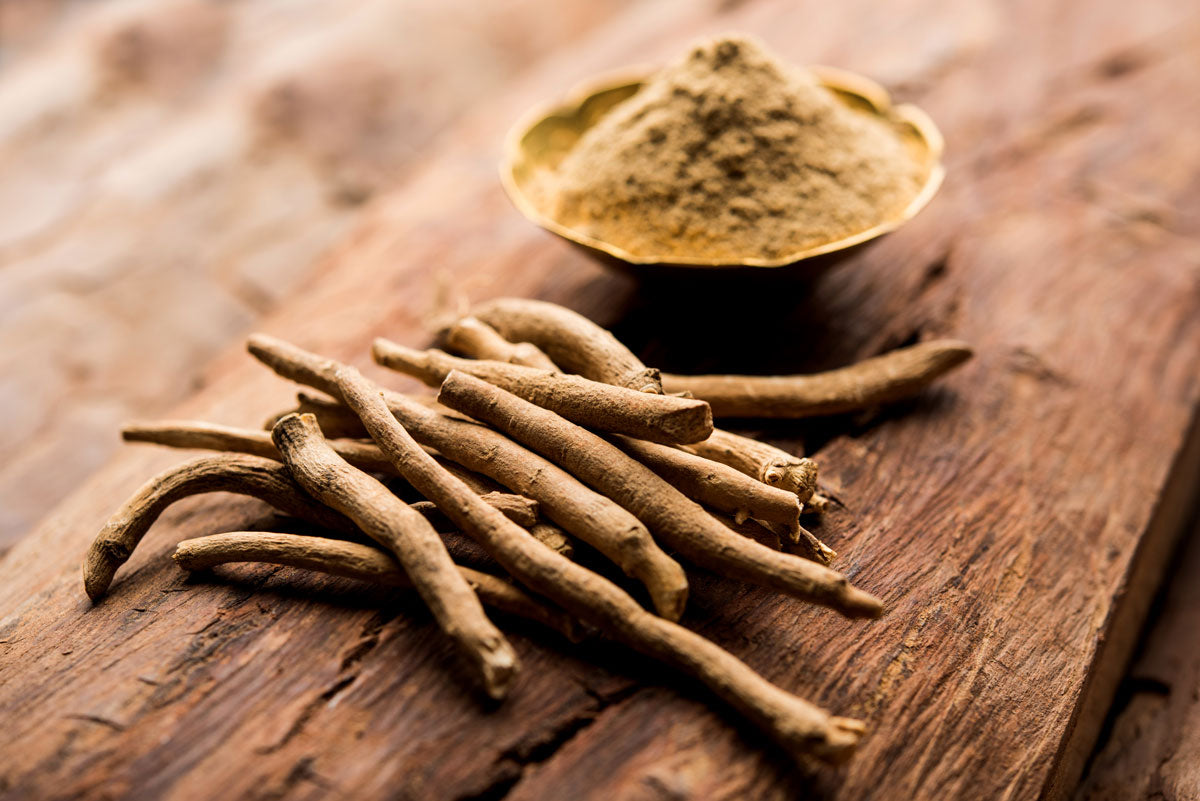
Ayurvedic herb ashwagandha, often called Indian ginseng, has several advantages for skin conditions. Creating and hydrating skin oils rejuvenates strained skin and improves a good complexion. Its hydration qualities rejuvenate skin cells and are very nourishing and flexible. Ashwagandha’s antioxidant properties fight oxidative stress, improving young skin and lessening wrinkle looks. Reducing sebum output also helps with acne and maintains clean skin by regulating oil production. Ashwagandha’s anti-inflammatory properties calm skin irritations, allergies, and sensitivity, preventing free radical damage. It also helps to balance skin tone, thereby addressing hyperpigmentation. Though ashwagandha may be used orally or topically, visiting a doctor before adding it to your skincare routine is essential.
Lavender Oil
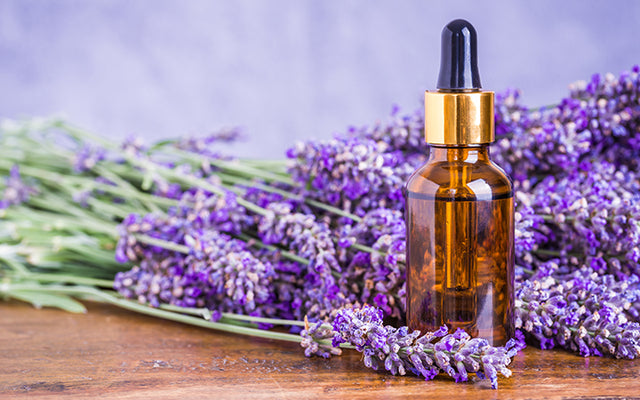
Lavender oil is a natural cure for inflammation, eczema, and dry skin. It also helps control wrinkles by even developing skin tone. It may be used as a face toner or diluted with coconut or carrier oil. Its antifungal qualities could help prevent psoriasis and eczema. Lavender’s antioxidants help fight free radicals, slowing fine lines and wrinkles. It may also help calm inflammation and heal wounds. Still, before adding lavender oil to your skincare regimen, see a doctor.
Chamomile

Chamomile is a varied skincare product with numerous benefits for all kinds of skin. Its antimicrobial properties aid wound healing, sunburn and rashes management, and red, irritated skin treatment. Chamomile also helps hydrate and soften sensitive skin, thereby regulating skin tone and resolving hyperpigmentation issues. Its gentle nature qualifies it for skin prone to acne. Its antioxidants fight free radicals, therefore reducing fine lines and wrinkles. Still, for specific problems, it’s necessary to consult a dermatologist and patch-test new products.
Sage

Sage is a potent herb that has benefits for treating skin conditions. Its vitamins A, C, and E help prevent early ageing and protect the skin against free radical damage. It also contains essential minerals like calcium, magnesium, and potassium, promoting skin resilience and brightness. Sage has astringent properties that help with skin ageing, acne, psoriasis, and eczema; it washes the skin very well. However, patch-test newly acquired components and contact a dermatologist for specific problems.
Thyme
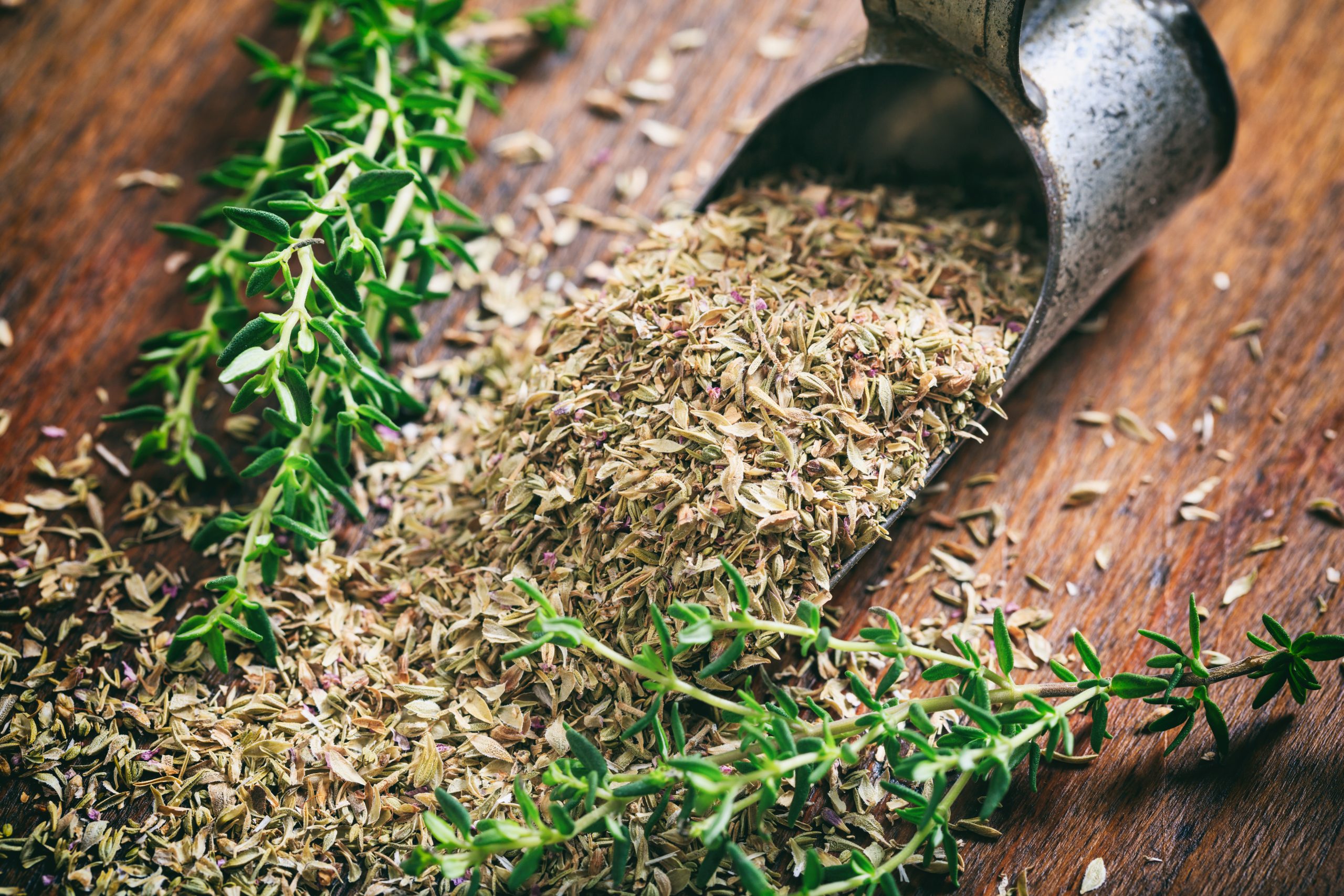
Thyme is a natural treatment with many benefits for beautiful skin. Its antibacterial properties help fight acne, lower blood pressure in high-blood-pressure rats, and alleviate coughing in humans. Thyme supports overall health via abundant vitamins A, C, and other minerals. It also helps with environmental cleaning and protects against common air pollutants like mould. Thyme extract stimulates a fresh complexion by increasing blood flow and revitalising the skin. More research is needed to confirm these changes in individuals. See a healthcare expert before using thyme for specific skin conditions.
Echinacea
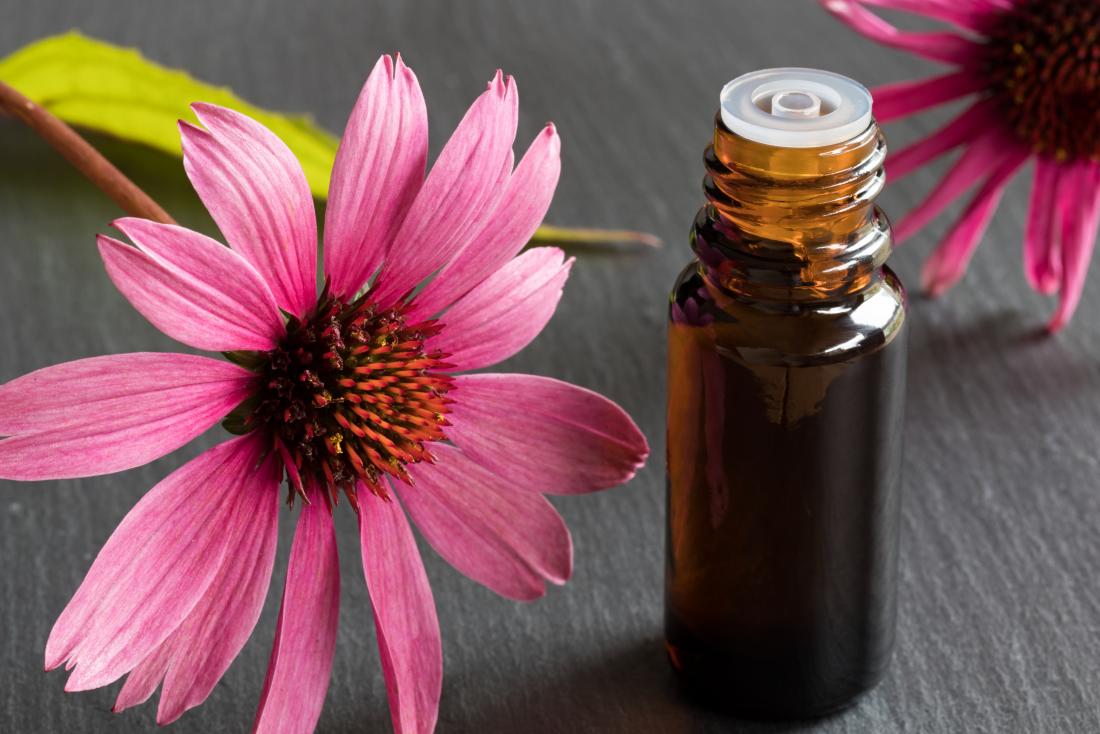
Echinacea is a naturally occurring plant that has benefits for skin conditions. Packed with antioxidants, it inhibits early ageing and protects the skin from free radical damage. It also has anti-inflammatory properties, which help soothe delicate skin. Echinacea may help increase skin hydration and minimise wrinkles by 10%–14% when used as a face cream or gel. Though everyone responds differently to echinacea, visiting a dermatologist before integrating it into your beauty routine is advisable.
Peppermint

Peppermint oil improves skin condition by reducing redness and irritation and relaxing inflammation. It may be diluted to stop adverse effects before application. It helps in acne treatment as it lowers inflammation and regulates oil production. Apart from healing wounds, peppermint is a natural remedy for bug bites and itching. Its antibacterial properties help it be an excellent scrub for hydration and softening dry skin. Patch test new drugs and consult a dermatologist for specific problems.
Comfrey

Commiphora has several effects on skin health among plants. It fights infections, decreases inflammation, speeds up the production of new skin cells, and helps moisturise and soothe dry, irritated skin. This makes it an excellent product for promoting skin regeneration and ideal for all skin types. As a bonus to its skin-health benefits, comfrey has anti-inflammatory characteristics that help calm redness and inflammation. It is crucial to see a dermatologist and do patch tests on new drugs in case of particular responses.
Rosemary
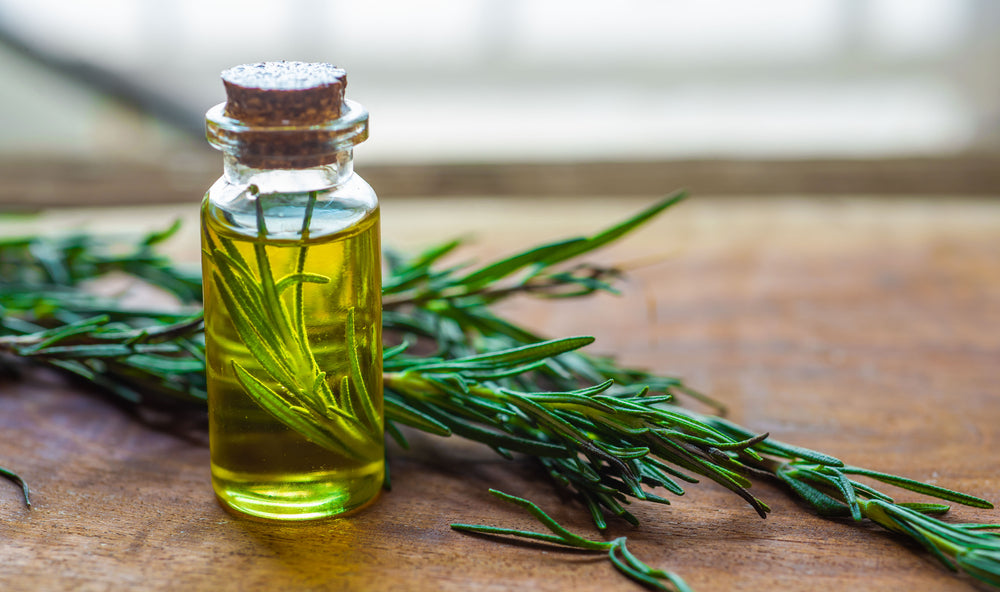
Rosemary is an excellent herb for good skin. It lowers redness and inflammation, treating skin disorders like eczema and dermatitis. It also tones and tightens the skin and boosts the generation of collagen. Besides treating skin diseases, lowering oil buildup makes the skin look smoother and healthier. Make toners or use rosemary-infused skincare products to add rosemary to your regimen.
Yellow Sweet Clover

Yellow Sweet Clover (Melilotus officinalis) is an old herb with significant skin health benefits. Originally used to cure rheumatism, wounds, and ulcers, its anti-inflammatory properties are now used in skincare to reduce redness and inflammation, leaving the skin radiant and youthful. Furthermore, numerous herbal treatments are beneficial for skin texture and irritation control. Still, contacting a dermatologist for specific problems and patch-testing any added components is recommended.
Oat Straw
Oat straw is a nutrient element of the oat plant and is well-known for enhancing skin condition. It benefits people with eczema since the plant component beta-glucan reduces inflammation. Oat straw extract is a calming agent and is appropriate for sensitive skin. It also relieves dryness and irritation, the same as colloidal oatmeal. Oats may speed wound healing; hence, they are helpful for overall skin health. Whether used topically or orally, oat straw greatly benefits your skincare routine.
Basil

Basil’s antibacterial and anti-inflammatory qualities make it a natural moisturiser suitable for herbal acne therapy. While it may also provide sun protection, it should not substitute broad-spectrum sunscreen with SPF 30 or above. Basil extract lessens wrinkles in face creams. It also has antifungal effects, although certain fungal illnesses require different therapies. However, you should see a doctor before taking basil for specific skin issues.
Horsetail

Horsetail is a robust herb with plenty of skin health benefits. It promotes collagen production, therefore tightening and firming skin. It also cleans and detoxifies the skin, opening pores for the perfect texture. Packed with minerals like iron, manganese, silica, and antioxidants, horsetails enhance skin tone and texture. It works gently on fragile skin, which is suitable for many skin types. Its antioxidant properties prevent free radical damage, improving overall skin health. For specific problems, however, it’s advisable to consult a dermatologist and patch-test new drugs.
Rose Hips

Rosehip oil, produced by pressing the small, berry-like fruit of the rose plant, has several beneficial impacts on skin health. This natural moisturiser is excellent for dehydrated skin thanks to its antioxidant and essential fatty acid content. The vitamin A in rosehip oil stimulates cell regeneration, reducing skin dullness and leaving skin appearing vibrant. Because it promotes collagen formation, it is essential for the elasticity and firmness of the skin. Rosehip oil is an antioxidant and photoprotective, speeding healing and protecting against sun damage.
Turmeric
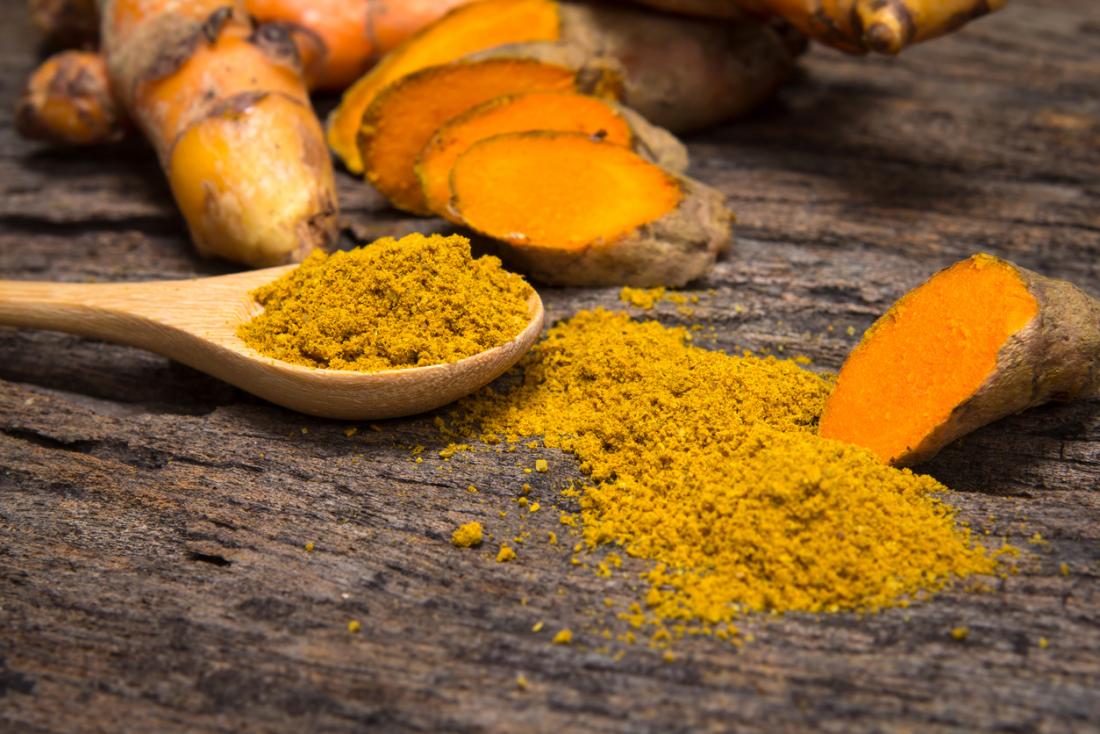
Turmeric naturally lightens the skin and has many other beneficial impacts on skin health. It may be helpful for acne treatment as it inhibits the growth of the bacteria known as Cutibacterium acnes, which are responsible for acne lesions. Some other advantages include helping with psoriasis, hydrating dry skin, reducing the appearance of dark circles around the eyes, and reducing the rate of skin ageing. Consider supplementing your diet with turmeric or adding it to your food for optimal results.
Calendula
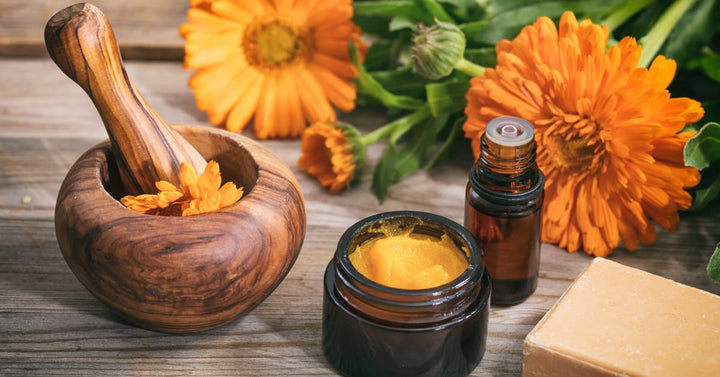
Calendula, a marigold plant, has anti-inflammatory, moisturising, and encouraging qualities that benefit those with dry skin or eczema. Its antioxidant content helps preserve collagen and elastin supplies, strengthening and elasticising the skin. Calendula may also aid with fine line and wrinkle reduction, so your skin will look younger for longer. If you have skin issues, see a dermatologist; always conduct a patch test before using any new chemical. To sum up, calendula is a great herb to add to a skincare regimen to enhance skin condition.
Alfalfa
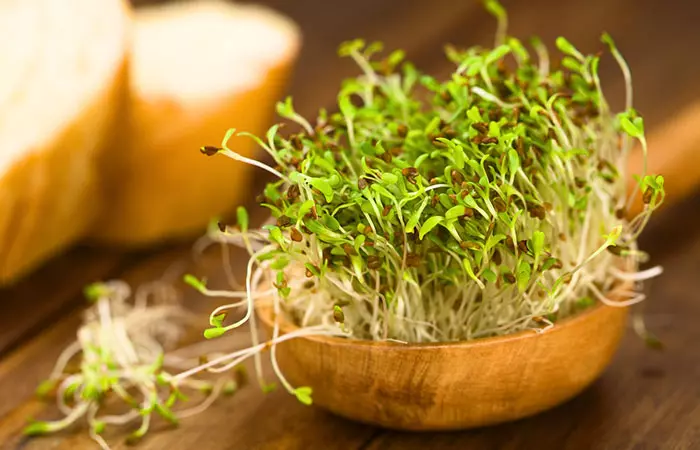
Alfalfa is a nutrient-dense plant that helps with skin health. It improves circulation, reduces dryness, and calms inflammation. Rich in antioxidants, it helps preserve general skin health and prevent early ageing. Its high chlorophyll concentration helps level skin tone and cure acne by efficiently cleaning sebum and pollutants from pores. Including alfalfa in your skincare regimen helps your skin grow organically.
Chickweed

Chickweed is a flexible plant with many skin-healthy properties. It has long been used in traditional medicine to hasten wound healing and lower irritation, particularly for skin illnesses and dermatitis. It also has anti-inflammatory action, mainly if used as a plaster. Fresh juice lowers the development and generation of the hepatitis B virus (HBV). Hence, chickweed also fights pathogens. Including chickweed in your skincare regimen will help to produce healthy, revitalising skin.
Nettles
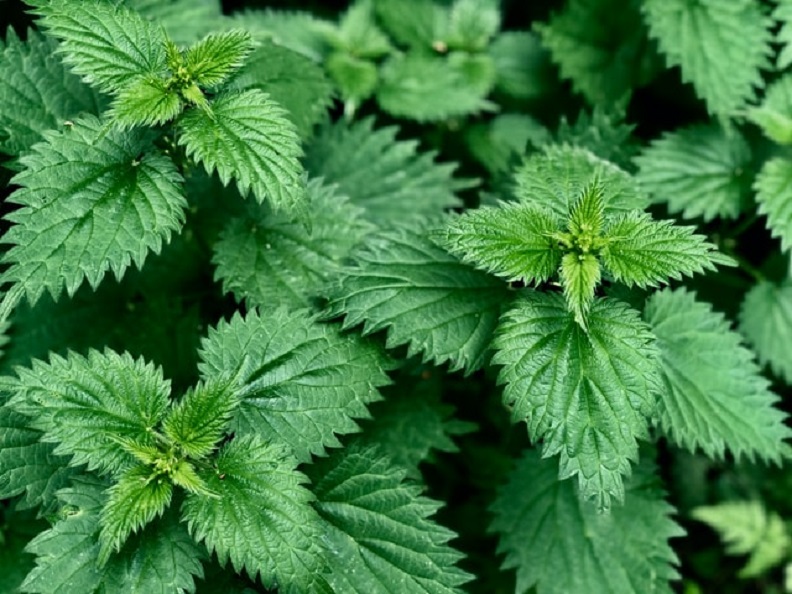
The anti-inflammatory, antioxidant, acne-controlling, wound-healing, and hair-health-promoting properties of stinging nettles benefit skin health. Consequently, they soothe inflamed skin, reduce redness, and protect against free radical damage. Recovering wounds and treating skin infections are two more uses for nettles. However, a dermatologist visit and a patch test of new components may be necessary for specific problems.
Sandalwood

Sandalwood eliminates acne, evens skin tone, reduces the look of scars, and fights against germs and other organisms. Because it contains antioxidants, which neutralise free radicals, the skin becomes softer, less dry, and more hydrated, reducing the appearance of fine lines and wrinkles. To delay the appearance of wrinkles, try soaking your face in a combination of sandalwood oil and hot water before bed. Due to its ability to regulate sebum production, sandalwood is an effective acne therapy. This substance blocks the development of melanin, which prevents the skin from getting darker and has abnormal colouring. Mix sandalwood powder with curd, honey, and lemon juice to prepare a skin-lightening paste. Sandalwood oil does more than only nourish the skin; it also reduces the look of scars, makes cells more pliable, and evens out skin tone. Before using a new skincare product on your whole face, test a little area to ensure there won’t be any adverse effects.
Conclusion
Ayurvedic herbs are powerful and natural, repairing the skin while making it seem healthy. The medicinal qualities of these plants have made them popular for thousands of years. Because different individuals have different skin types and sensitivities, it’s always a good idea to test a little skin with a new product before applying it. For more tailored recommendations, consider seeing an Ayurvedic or skincare specialist. Ayurvedic herbs can enhance aesthetics, skin health, and self-awareness in a healthy skin care regimen.
Enjoy These useful Herbs to Get Healthy and Glowing Skin!


